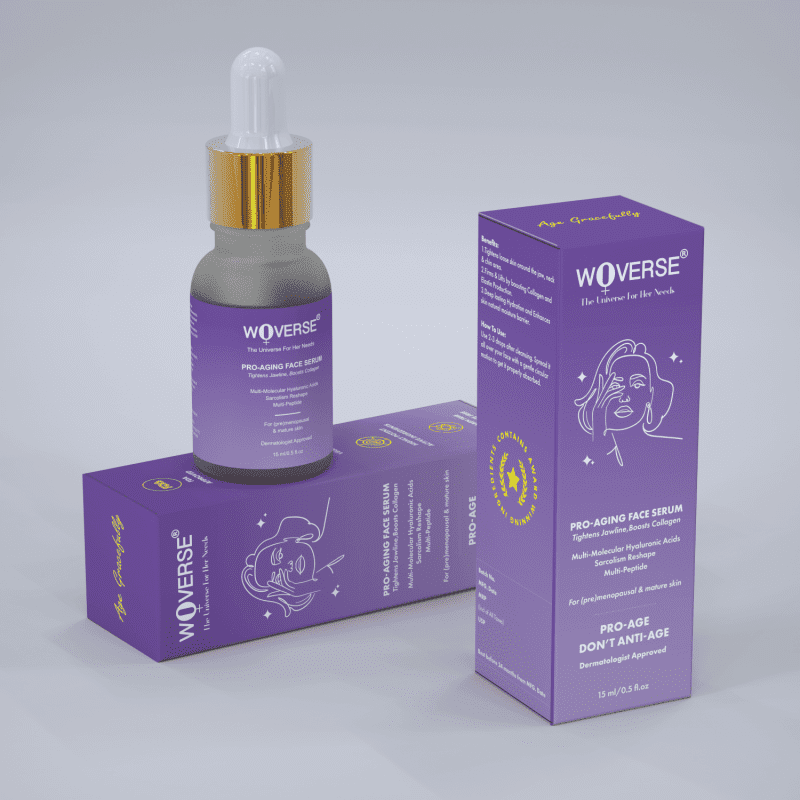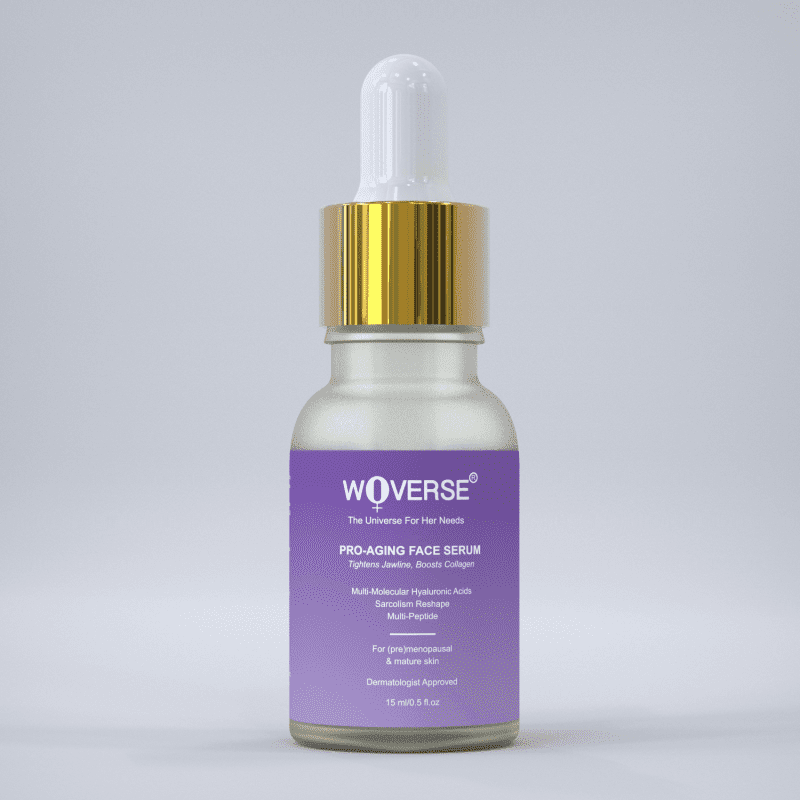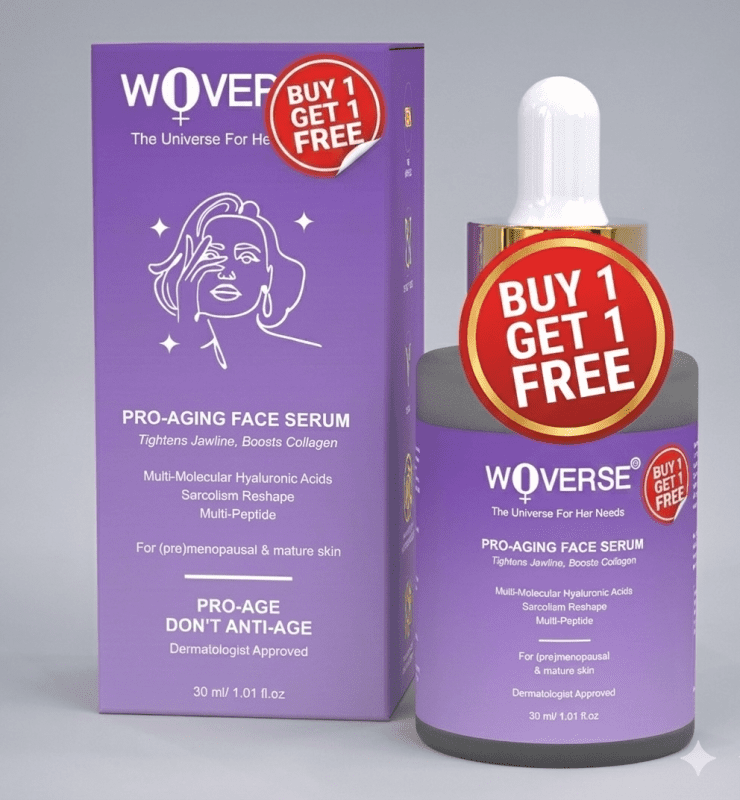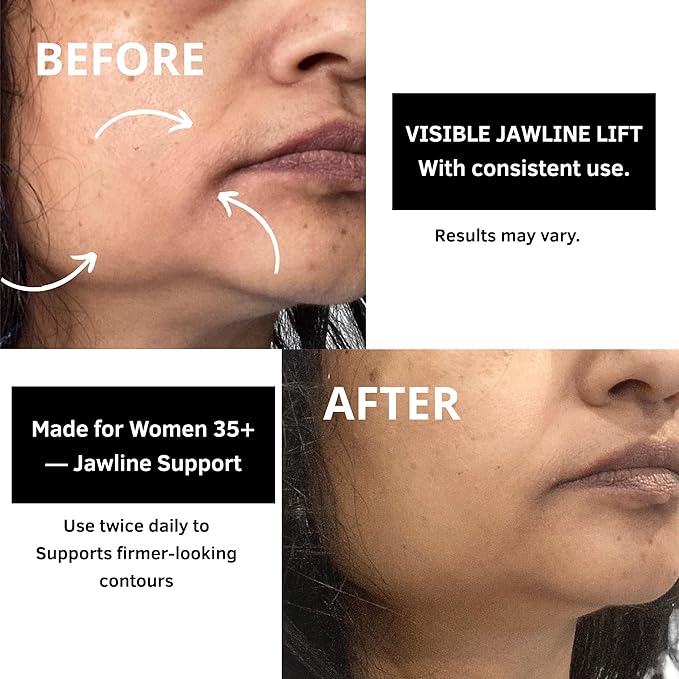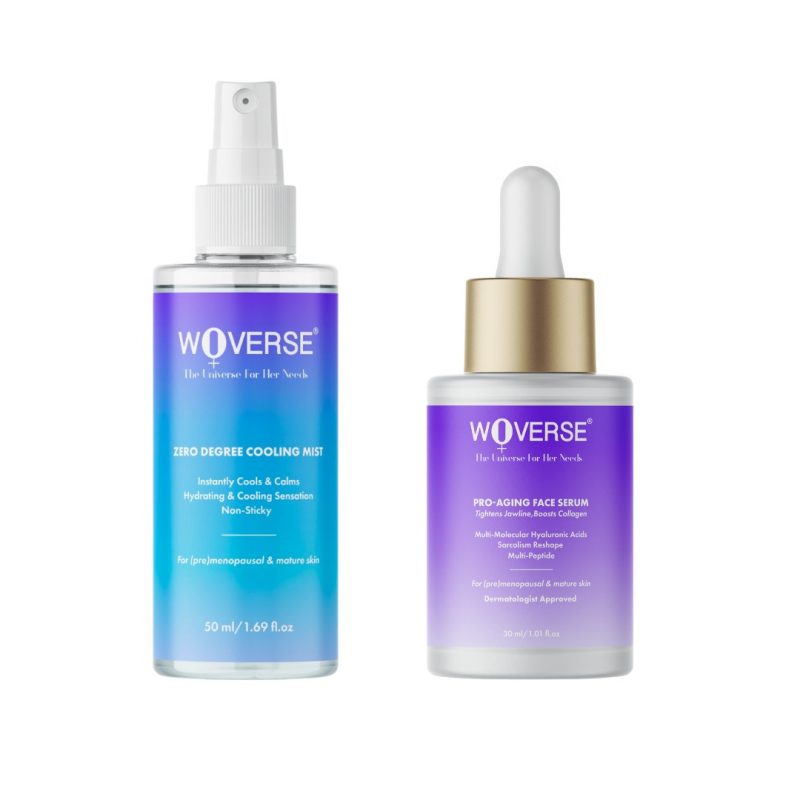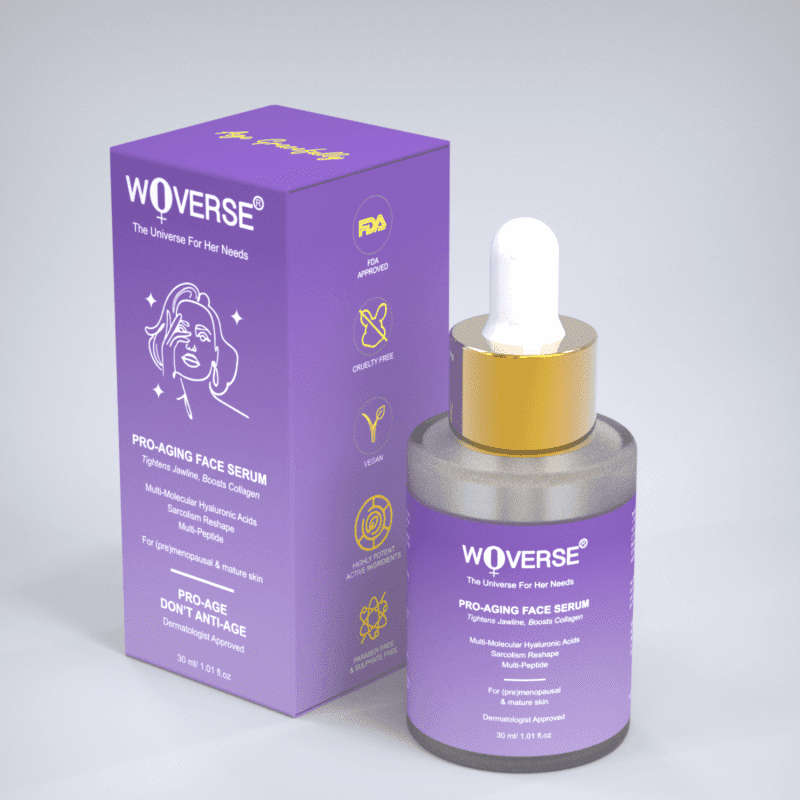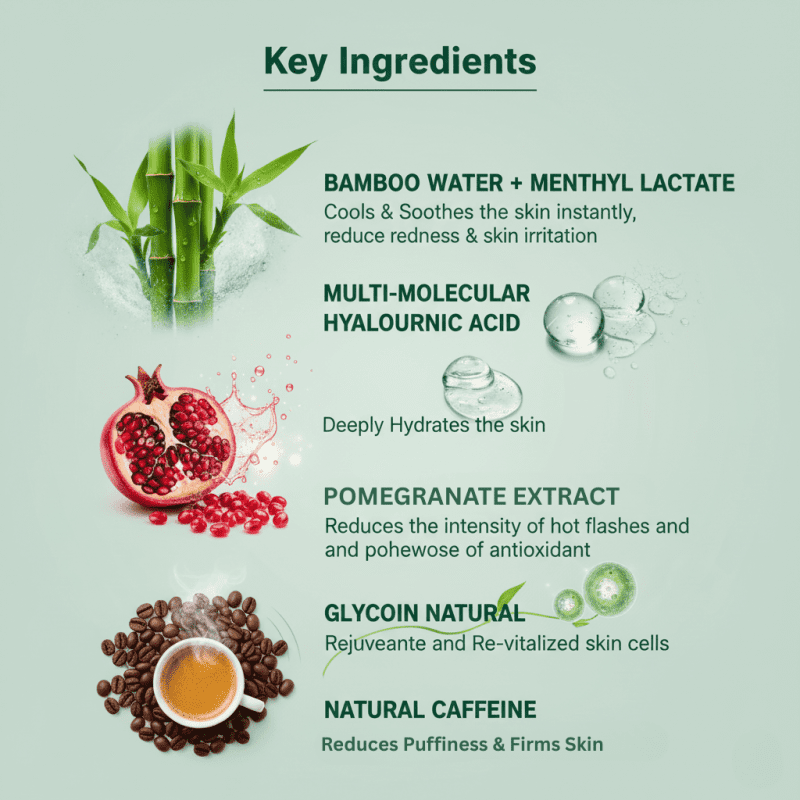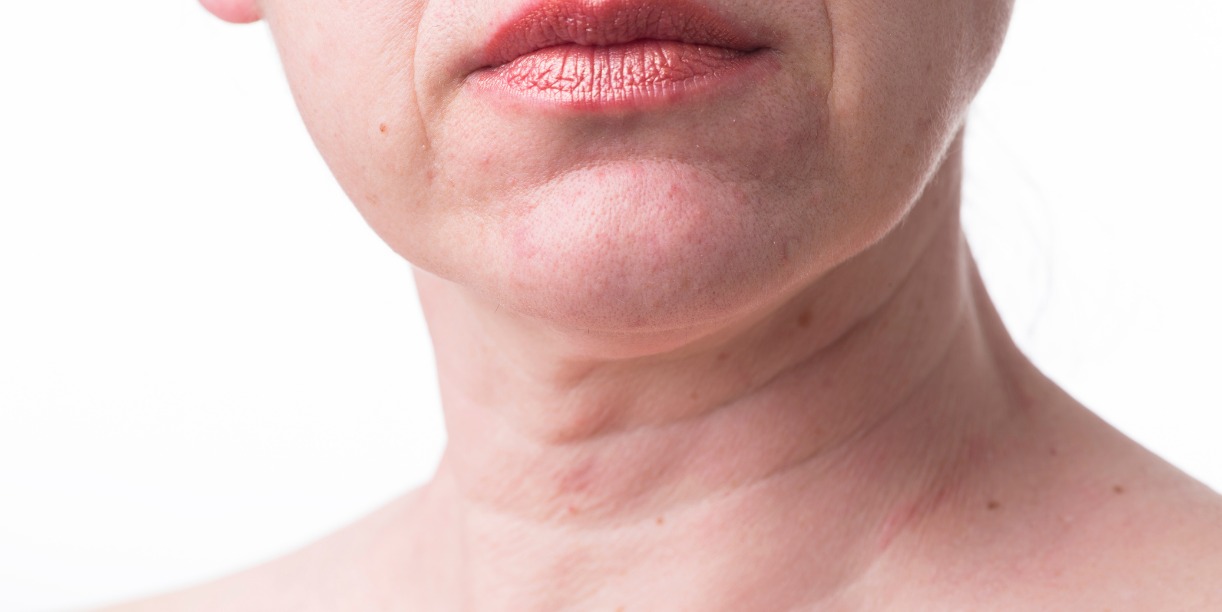
What is Facial Acne
Really? At our age?? Sigh. And just like during puberty, hormones are to blame this time too. While teenage acne made its appearance on your forehead and nose, menopausal acne tends to appear lower on your face, around your chin and jaw. Lovely.
25% OF WOMEN AGES 40-49 ARE AFFECTED BY ACNE
Why it happens ?
Acne during menopause is caused by hormonal imbalances. As women age, their estrogen levels decrease, while male hormones, like testosterone, increase. This can lead to an imbalance between estrogen and testosterone, which can cause the skin to produce more sebum. Sebum is the skin's natural oil, and when it mixes with dead skin, bacteria, and debris, it can clog pores and cause acne.
What can you do ?
Because a woman’s skin is thinner and drier, treatments for teenage acne are often too harsh.
- Wash your face gently: Cleanse your skin twice a day with a gentle cleanser. Avoid harsh cleansers, soaps or anything too drying. Avoid over-cleansing as this can dry skin out even more and trigger more oil production making breakouts worse.
- Use the right skincare ingredients & products: The types of products that you use to control acne in puberty aren’t suitable for menopausal skin. An ingredient like salicylic acid (often used in acne control products) is going to dry out your skin far too much. You need a carefully balanced formulation to deal with menopausal skin which is confused– dry and dull but with acne breakouts at the same time.
- Use makeup that is water-based and oil-free. Go make-up-free if you can give your complexion a rest. If you do use makeup, make sure it’s water-based and oil-free.
- Don’t pick spots. As difficult as it is, avoid picking spots as this can aggravate them and lead to scarring. Skin is thinner and weaker in menopause and likely to scar more easily.
- Avoid stress. Stress is known to be a trigger for hormonal breakouts so try and look for ways to minimize stress in your life – easier said than done we know! An inside/outside approach is needed in perimenopause and menopause. Yoga, meditation, and mindfulness are all excellent ways to unwind and reduce stress. Sometimes just allowing yourself a bit of me time is all it takes to bring stress levels down. Taking a bath, reading a book, going for a walk, watching TV – whatever it takes to put yourself first for a while and switch off.

